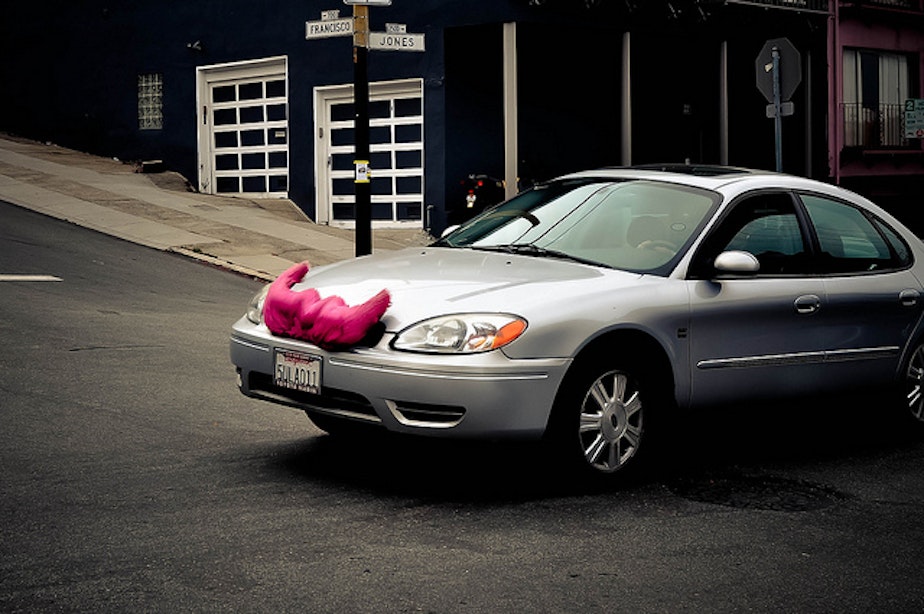Legalizing Rideshare: Seattle Council Wrestles With How To Regulate The New Marketplace

Rideshare companies have been flourishing in Seattle – illegally. On Friday, the City Council will consider a new plan to finally regulate taxi-alternatives like Lyft, Sidecar and UberX.
Council members say they’re trying to balance consumer choice, public safety and fairness to taxi drivers. The most controversial aspect of the plan is a cap on the number of drivers the rideshare companies can employ. The city would license 300 rideshare drivers, who can then work for any company.
This proposal has drawn opposition from not only the rideshare companies, but also Mayor Ed Murray. “I would like to avoid caps,” Murray told KUOW earlier this week. “I would like to extend the number of taxis that could get licenses. I think there’s a compromise here to level the playing field for taxis and the new players.”
But Councilmember Mike O’Brien said the cap on rideshare drivers is needed, at least during a two-year pilot phase while the city sorts through the implications of this new marketplace.
For example, O’Brien said city officials have tried to create incentives for more wheelchair-accessible taxis, but now drivers are working for rideshare companies rather than leasing those cabs.
“A lot of the drivers that used to drive wheelchair taxis are no longer doing it because it’s not profitable compared to what they can do with maybe an Uber or Lyft,” O’Brien said. “And so there’s wheelchair taxis that are sitting idle and we’re losing the type of access we wanted.”
O’Brien said these are the types of unintended consequences he’s trying to prevent. “Not for people that have smart phones and credit cards and can pay extra money and are going to clubs at night,” he said. “But for other people who depend on this industry, their reliability will be undercut.”
O’Brien said his current proposal for 300 rideshare drivers plus 150 new taxi licenses would mean a 50 percent increase in the number of drivers legally taking passengers in Seattle.
Rideshare companies have not disclosed how many drivers they have currently working in the city.

